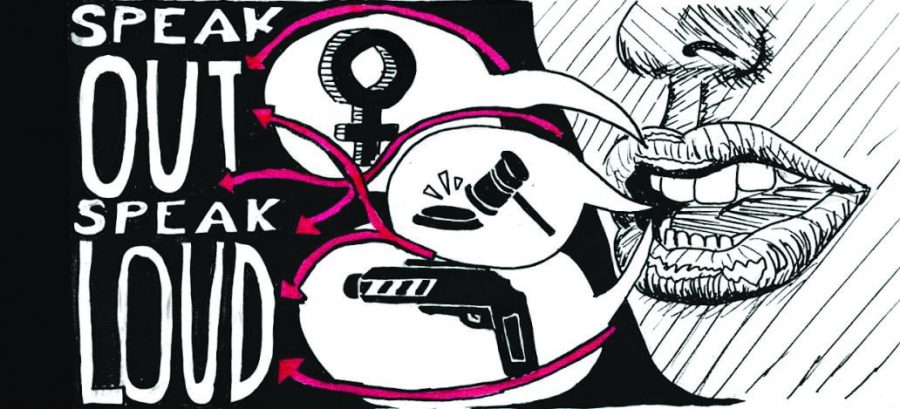Students’ First Amendment rights do not end when school begins
In light of the Marjory Stoneman Douglas High School shooting, thousands of students across the country — including students here at Blue Valley — have taken the initiative to organize or participate in class walkouts.
Such demonstrations have brought back to the table a decades-long debate; do students have the right to protest?
The answer is yes.
The freedoms of students were first challenged in the Tinker v. Des Moines case of 1969, when an Iowa school district suspended several students for wearing black armbands in protest of the Vietnam War.
The court ruled in favor of the students, stating school administrators have to demonstrate constitutionally valid reasons to enforce any regulation of speech in the classroom.
In other words, as long as demonstrations are carried out in a peaceful and respectful manner, students reserve the right to speak out without being reprimanded.
Despite this ruling, several schools in the country have made efforts to discipline their school’s walkout-participants through threats of detention, suspension and in some states, even paddling.
Although schools legally hold the authority to inflict punishment due to a disruption to the overall function of the school or a violation of the school’s content-neutral policies, a school can not inflict punishment on the grounds of thinking the speech is controversial or because they disagree with a student’s position.
As Americans, we obtain the rights of the First Amendment, which grants an individual the freedom of speech, press, to peaceably assemble and to petition the Government.
When a student walks into a classroom, their constitutional freedoms are neither lost nor compromised.
Fortunately for the students of BV, our administrators chose not to punish any walkout participants, but numerous students nationwide are falling victim to an infringement on their rights.
In a democracy where we aren’t old enough to vote or in a school system where we are ruled by a board, often we find that the only place our voices aren’t limited is amongst each other.
As teenagers, our intelligence and seriousness is continuously underestimated and belittled by the adults in charge.
We are expected to play the submissive role of “student” without complaint or uprising, but when we are heavily affected by an issue we will fight for a place at the table and should not be lashed out against for doing so.
Student’s have the right to protest because we are the future and we deserve to be heard.
So the next time you are told to sit down and stay quiet: stand up, speak out and speak loud.




